The implementation of VAR in the Premier League has led to a plethora of talking points in its early days, and here fans have their say on its use so far.
The English topflight introduced VAR for the first time at the start of the season, where they spent years monitoring its implementation in other competitions to achieve best practice.
However, with VAR rearing its head for mostly all the wrong reasons seemingly every week on numerous occasions, fans and all those associated with the game find themselves analysing the use of the technology, or lack thereof, more than the game itself.
Its use worldwide has garnered criticism and calls for improvement, where decisions like Roberto Firmino‘s ‘offside’ call against Aston Villa and Heung-min Son’s red card against Everton are just two of a myriad of examples across the league which have caused somewhat of a disillusionment.
Here, This Is Anfield’s James Nalton (@jdnalton) and Chris Williams (@Chris78Williams) were joined by fellow writer Jonathan Higgins (@jhiggins3) to discuss everything VAR.
What’s your verdict on VAR in the Premier League?
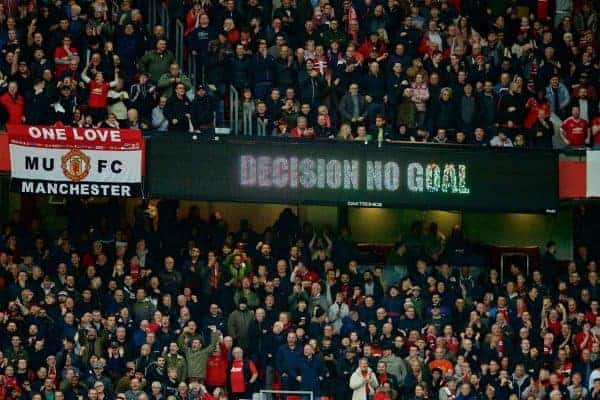
JAMES: VAR is definitely not working in the Premier League. There is too much confusion around its application, which seems to change from week to week and in some cases from game to game. Certain laws appear to be prioritised one week, then others the next. Rather than bring more consistency it has done the opposite.
I was tentatively in favour before it was introduced in football generally, but probably less so by the time it was about to be introduced to the Premier League.
As a follower of rugby league, I had seen its introduction in another sport and the problems it brings even in a game where there are more natural breaks in the play. It seems the Premier League and some of football’s other governing bodies didn’t learn lessons from other sports’ uses of technology.
Having witnessed it first hand at the 2018 World Cup, you could see the potential problems it could create, even though it was put forward as a success after the tournament.
In an article for This is Anfield in January 2017, I mentioned that “decisions will still be disputed… and with things like handball the laws can be interpreted differently by different people so the arguments around decisions will remain.”
It feels like the Premier League have overseen the most unsuccessful implementation of the technology so far, although fans in some other leagues around the world probably argue the case for their own league!
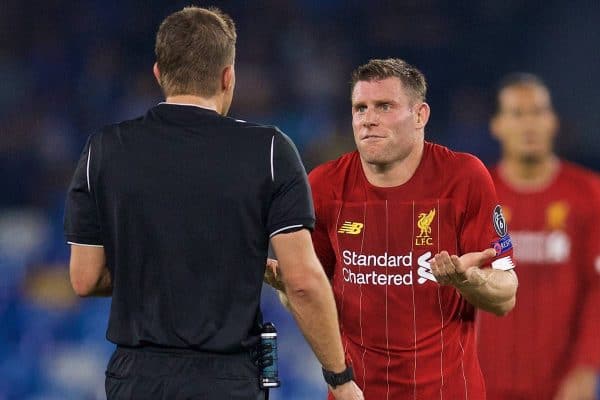
CHRIS: Verdict is still out, there’s been a number of teething issues, which have absolutely nothing to do with the technology but more the officials using it.
This weird high bar the PGMO have set is at odds with the IFAB protocol.
I agree it can’t be used for everything but it’s never been designed for that, it’s not a 100 percent solution but it seems to be viewed that way in the Premier League.
It has brought up more questions of poor officiating than I’ve seen in most other leagues.
JONATHAN: Prior to its introduction, I was extremely vocal in my belief that it was vital for the improvement of the game.
We were facing a situation where the game was littered by a number of errors from incompetent match officials.
But it’s fair to say since its introduction VAR has been an utter horror show in the PL. This may sound harsh, but in my opinion, all it has succeeded in doing is highlight just how incompetent some of the match officials are.
What we have at the moment is this weird vicious circle, there is this strange taboo about match officials using pitch-side monitors but at the same time, there seems to be a huge reluctance for the VAR officials to overrule the match official.
And don’t ask me what clear and obvious means anymore!!
What’s your most pressing concern with VAR in its current form?
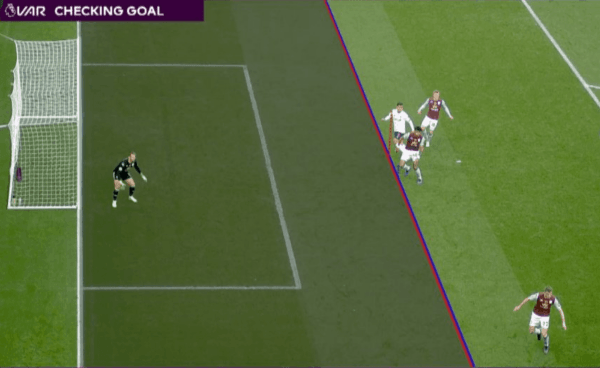
JAMES: I’ve always thought the handball law has been poorly implemented, and since the introduction of VAR the interpretation of the law seems to be getting further away from what it is meant to punish – i.e. deliberate handball.
But I think the biggest problems can arise with offside. Even though in theory it’s a yes or no call, it’s one which has to be made almost instantly (i.e. the raising of a flag or not) to be fair for both sides, which appears impossible for the current version of VAR.
Even if the defence plays a perfect offside line, the flag might not go up for an obvious offside ‘just in case’, with a view to checking the replay if a goal is scored. But what happens if no goal is scored, the ball goes out for a corner, and a goal is scored from that corner? The goal will be given despite an obvious offside in the previous move.
Attackers can lose out because marginal decisions are so difficult to call. When exactly was the ball played? Is the frame rate enough to decide this with 100% certainty? Is a toe or an arm-pit being 1mm offside really what the law was originally introduced for? Probably not.
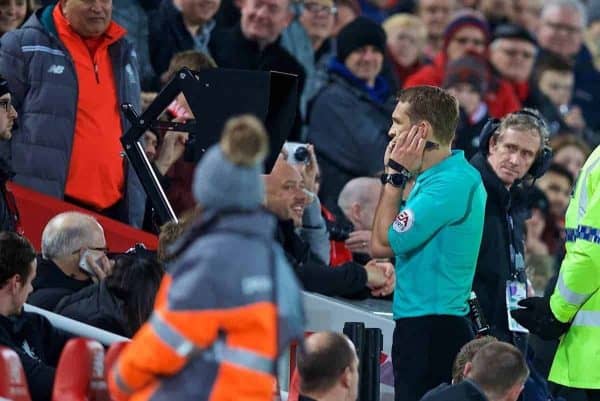
CHRIS: As Jonathan noted, the lack of pitchside monitor use, or on-field review (OFR) as it’s called.
Once again the use isn’t for everything, certainly not absolute decisions – offside, ball in/out of play and position on the pitch, that is for the VAR to call.
But, for highly contentious decisions the referee should be using them. I’m not sure what the communication is but “there’s an incident here that might warrant a second look” doesn’t seem to be used.
It won’t be needed for most and may only be needed once a game, but look at what we’ve seen in the last few weeks. Handball or not at Villa? Does the referee see something he didn’t originally? We’ll never know as the monitor wasn’t used.
Similar for the Trent call at Anfield. If Michael Oliver goes and looks at that and decides his original decision is fine it helps sell the decisions to the players, this isn’t opinion it is fact, many Bundesliga players have expressed this position after three seasons.
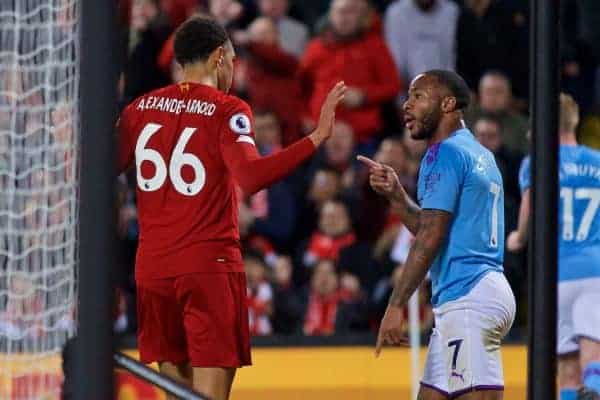
JONATHAN: It seems it has been diluted down to just access and review offside and handball decisions.
The new handball rules are a load of nonsense but were brought in to try and alleviate subjective thinking and make decisions black or white for VAR, but football does not work like that.
The current review of offside decisions is nothing short of a shambles. We have this weird situation where there is a completely over the top level of detail approach in trying to determine player positions, I mean Firmino’s armpit been offside for goodness sake!
The recent incorrect VAR offside decision during the Sheffield United vs. Tottenham game sums up some of the mess for me. Here, we had a three minute and 40-second delay after which the goal was incorrectly ruled out. A TV company were able to quickly highlight the error straight away.
Is it sucking the emotion out of the game?
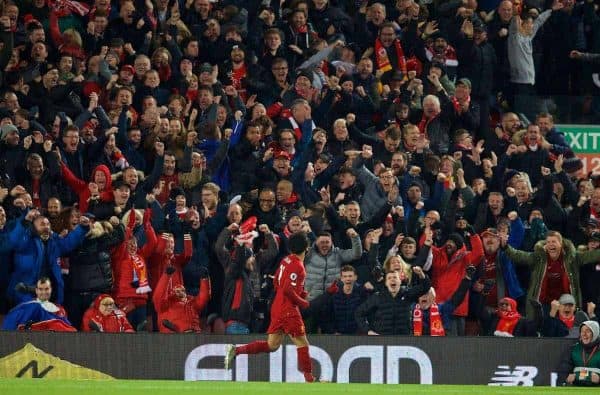
JAMES: It’s adding different emotions to the game, but these are generally not positive.
Some of the best moments in football are about instantaneous reactions, and VAR removes some of that.
The fans and players are affected because they will not celebrate goals as joyously as before because there is a chance it will be ruled out. Pre-VAR they just had to look at the referees before celebrating, now they might have to wait minutes and the moment is lost.
It’s a device made for TV rather than those watching in the stadium, and it seems it has added more debate than it has removed.
It has become a talking point in itself, and in the way VAR is covered in the media, it is now football’s version of Brexit. It’s instilling more negative debate around the game, but taking the shine of positive moments and emotions for players and supporters.
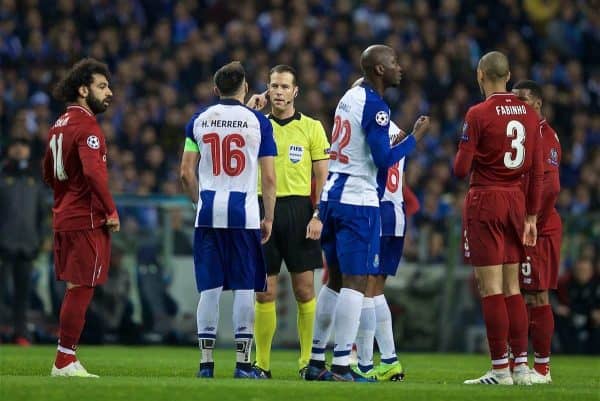
CHRIS: This is the most contentious part. Some will say yes, especially those at the ground, and unfortunately, when a decision goes against their team all fans will say that.
However, and I don’t say this lightly – fans don’t want consistency, they want their own version of consistency so they’ll only be angry when it goes against them and happy if their team gets a decision.
Every goal is checked, not sure anyone had a lack of emotion when Divock Origi smashed the second home against Spurs in Madrid or the four goals against Barcelona.
Each on was checked in the Champions League last season. But, the decision time needs to quicken up for some officials and better communication is needed for fans in the stadium, television viewers get good on-screen information.
JONATHAN: There is no doubt that an adjustment is needed by everyone involved in the game.
We saw and witnessed it during last season’s Champions League campaign without any issue.
However, this season the long delays have definitely removed a lot of the emotion. The lack of trust in the match officials has also added to this and there’s no doubt fans are a little bit more cautious about celebrating a goal, you have this double delayed cheers now.
And what are the key changes that need to be made?
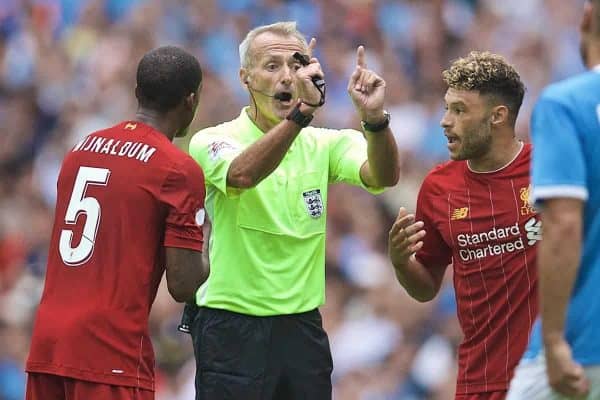
JAMES: For offside, you probably need to have a quicker, more automated decision that replicates the linesman’s flag. Perhaps some form of a buzzer or other instant communication to the linesman who can then raise his flag if it goes off, similar to the referee’s decisions using goal-line technology.
I think with handball they need to keep a mixture of the old laws and the new, as I mentioned in this Twitter thread.
Right now in the Premier League, there is a case to say the main change that needs to be made is to reconsider the use of VAR at all.
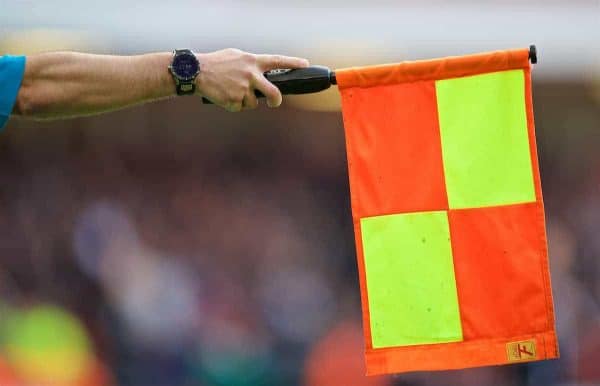
CHRIS: It’s all law-related, nothing to do with VAR.
If we now have technology that can go down to the millimetre but may not be 100 percent accurate to 30 centimetres then the offside law needs adapting.
Same with handball, get the wording of the law right and technology can help the right decisions be made. It’s not going anywhere, so it needs to be used to the best of its abilities.
JONATHAN: Am I allowed to say better match officials both on the pitch and in Stockley Park?!
Better communication and shorter review times are required.
Take that Sheffield United offside review, if after a predetermined time period offside can’t be proven and for a decision that tight, just allow the benefit of the doubt to the attacking team, similar to the umpires call in cricket.
It’s the age-old argument that people need to understand the game not just know the rules of the game.
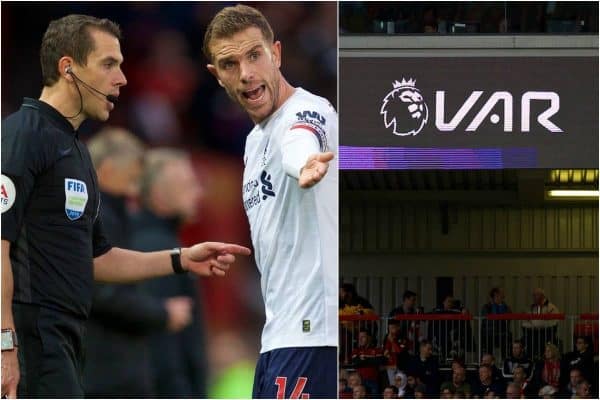

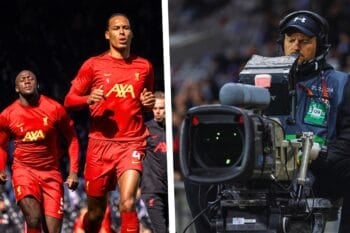


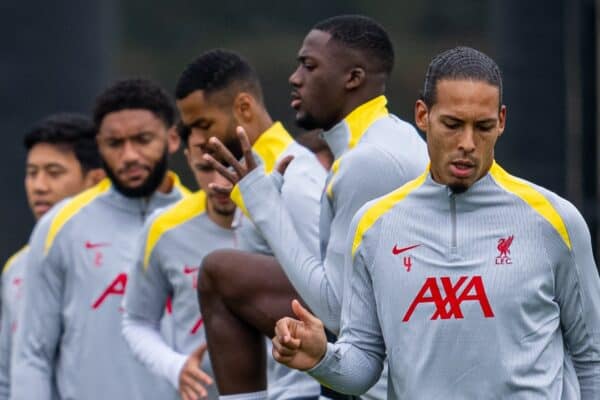
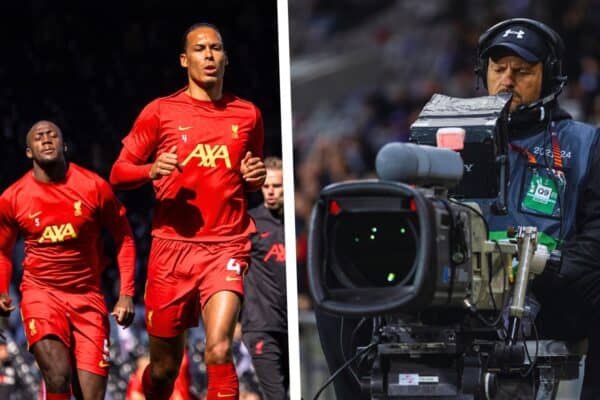









Fan Comments